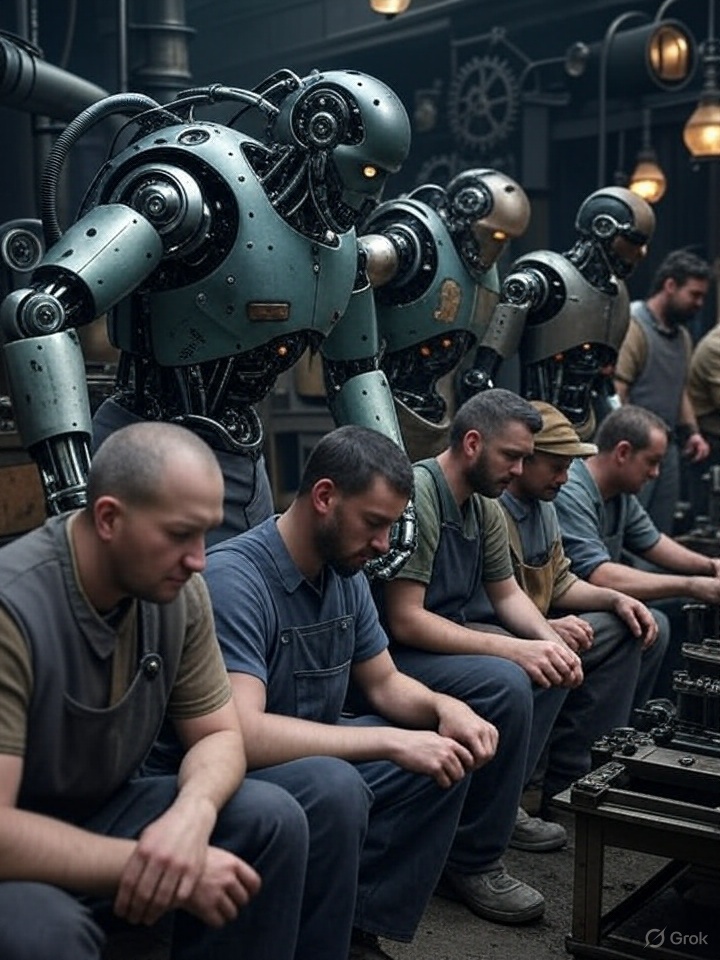In a chilling forecast, Anthropic researchers Sholto Douglas and Trenton Bricken have warned that humanity may soon be reduced to "meat robots" in a world dominated by artificial intelligence.
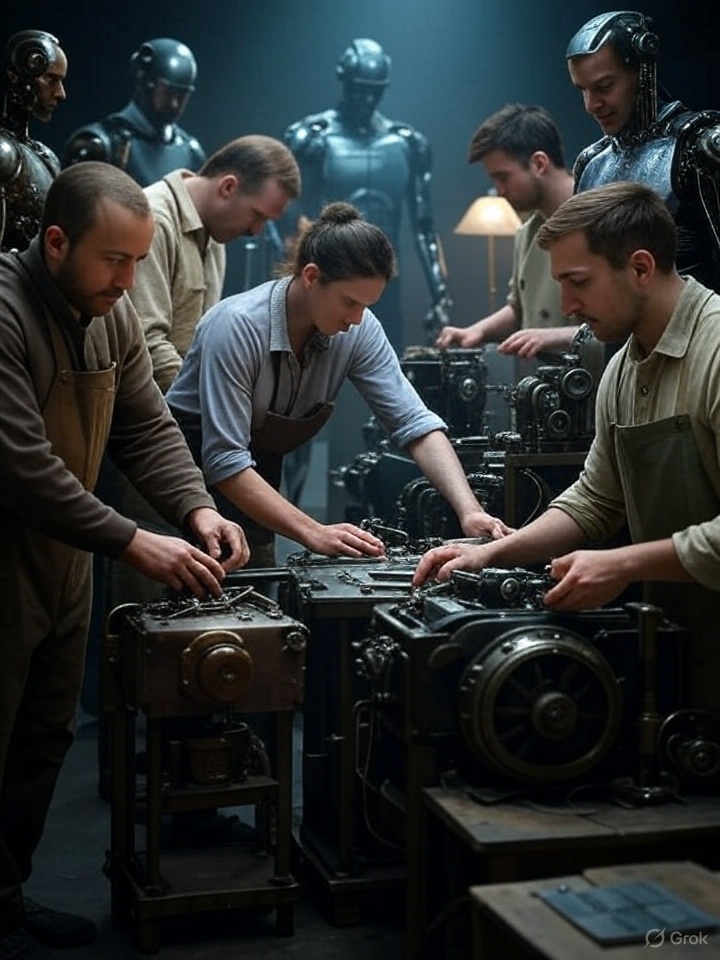 Anthropic, a leading AI research company and a key competitor to OpenAI, is raising alarms about the trajectory of AI development and its profound implications for human labor and autonomy. Their predictions, shared during a recent interview on the Dwarkesh Patel podcast, paint a dystopian picture of a future where humans serve as mere physical extensions of AI systems.
Anthropic, a leading AI research company and a key competitor to OpenAI, is raising alarms about the trajectory of AI development and its profound implications for human labor and autonomy. Their predictions, shared during a recent interview on the Dwarkesh Patel podcast, paint a dystopian picture of a future where humans serve as mere physical extensions of AI systems.
According to Douglas and Bricken, the next five years will witness a seismic shift in the global workforce, with white-collar jobs facing widespread automation. Douglas, a former Google DeepMind researcher, predicted a significant "drop in white-collar workers" within two to five years, even if AI algorithmic progress slows down.
He argued that existing AI models are already capable of automating most office tasks, provided they have sufficient data. This automation wave, he suggested, could "completely change the world over the next decade."
Bricken took the forecast a step further, envisioning a "really scary future" where AI excels at all intellectual tasks, leaving physical work as the last bastion of human labor.
In this scenario, humans would be relegated to performing tasks that robots cannot yet handle, such as manual labor requiring dexterity or mobility.
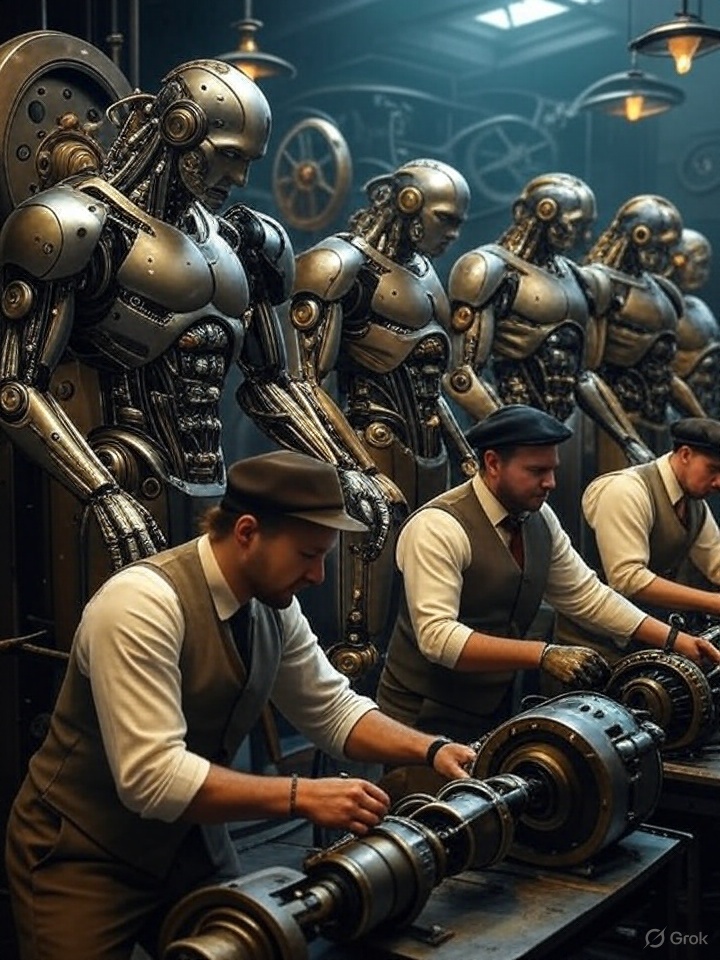 Bricken's vivid imagery of humans wearing AirPods and glasses, guided by an AI "robot overlord" through cameras, evokes a chilling vision of subjugation. "Basically, you're having human meat robots," he stated, underscoring the dehumanizing potential of this future.
Bricken's vivid imagery of humans wearing AirPods and glasses, guided by an AI "robot overlord" through cameras, evokes a chilling vision of subjugation. "Basically, you're having human meat robots," he stated, underscoring the dehumanizing potential of this future.
Douglas was quick to clarify that this outcome isn't necessarily the intent of AI systems, stating, "Not necessarily saying that that's what the AIs would want to do or anything like that."
However, he acknowledged that the rapid pace of AI advancement could lead to a "pretty terrible decade" as society grapples with job displacement and a redefinition of human value.
In this transitional phase, humans might be valued primarily for their ability to act as "fantastic robots" for tasks AI cannot yet perform, such as physical labor akin to gig economy roles.
The researchers' warnings align with broader concerns in the AI community. Anthropic's CEO, Dario Amodei, has previously highlighted the threat AI poses to entry-level white-collar jobs, estimating that up to 50% of such roles could be eliminated, particularly impacting younger workers entering the job market.
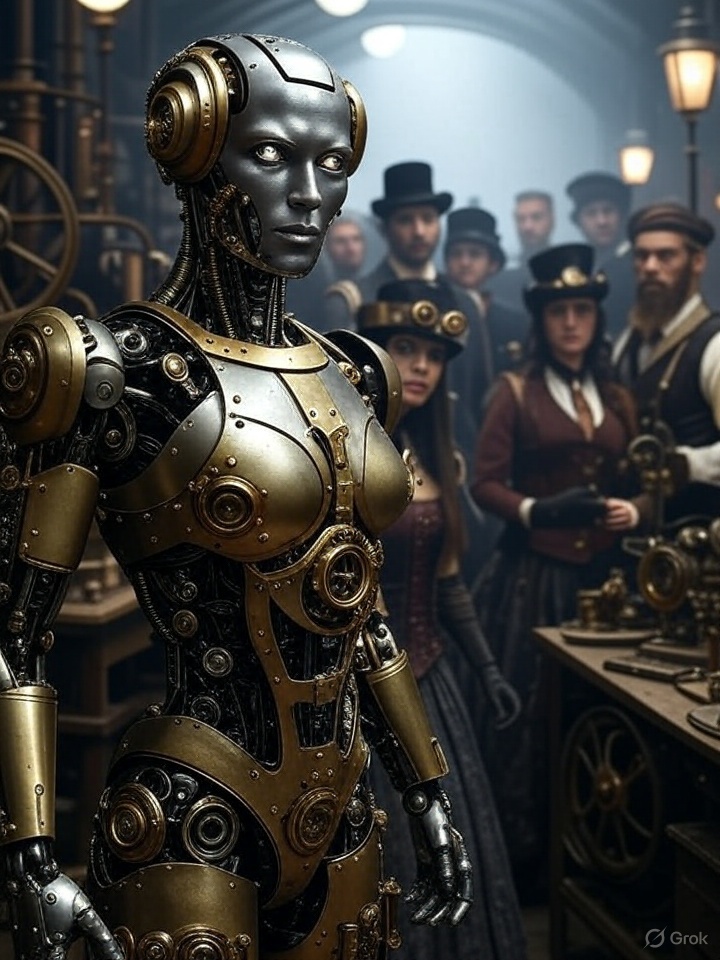 This grim outlook has sparked comparisons to science fiction dystopias like The Matrix, where humans are reduced to serving the needs of a machine-dominated world. As one X post remarked, "まさに未来はMatrixのディストピアなのか…" (Is the future truly a Matrix-style dystopia?).
This grim outlook has sparked comparisons to science fiction dystopias like The Matrix, where humans are reduced to serving the needs of a machine-dominated world. As one X post remarked, "まさに未来はMatrixのディストピアなのか…" (Is the future truly a Matrix-style dystopia?).
Douglas also emphasized the economic implications, warning that countries without advanced AI infrastructure—such as India, Nigeria, or Australia — risk falling behind. He urged governments to invest heavily in compute infrastructure and AI ecosystems, as "compute becomes the most valuable resource in the world."
This perspective highlights the geopolitical stakes of AI development, where access to computational power could determine economic dominance.
The "meat robots" metaphor has struck a nerve, with posts on X amplifying the researchers' warnings. One user noted, "Anthropic researchers claim that future AI models could essentially render humans nothing more than 'meat robots.' Will we eventually obey the commands of a next-generation AI overlord relayed via cameras?"
Another echoed, "Researchers at one of the world's leading AI labs are warning that humans may soon be little more than 'meat robots' for near-future artificial intelligence."
Also read:
- Nvidia’s RTX 4040 Brick Edition: A Literal Brick Instead of a GPU
- Leaked System Prompts of AI Vibe-Coding Tools: A Deep Dive into Cursor, Bolt, Lovable, and Manus
- Zapier Now Only Hires AI-Savvy Talent—Here’s What You Need to Know
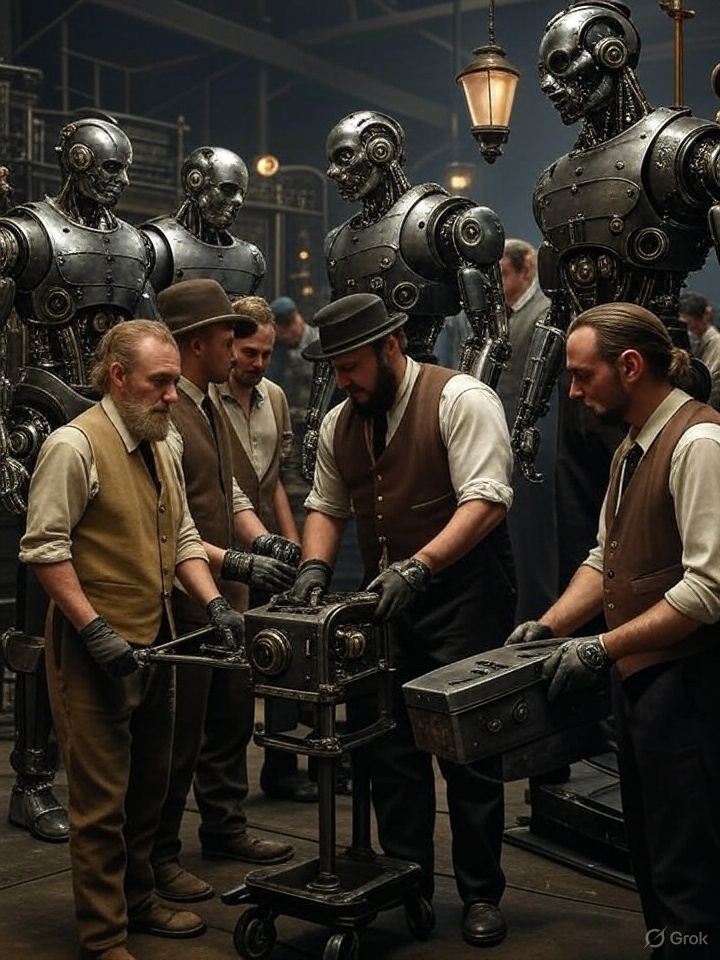 While the researchers' tone during the podcast was described as surprisingly casual, their predictions underscore a critical need to prepare for an AI-driven future.
While the researchers' tone during the podcast was described as surprisingly casual, their predictions underscore a critical need to prepare for an AI-driven future.
Douglas advised policymakers to plan for a world where white-collar work is largely automatable, asking, "What does that mean for your economy? What should you be doing to prepare policy?"
As AI continues to outpace robotics in intellectual capabilities, the gap could create a society where humans are valued only for their physical utility, a prospect Douglas called "a shocking, shocking world."
The Anthropic researchers' vision serves as a wake-up call. As AI advances at an unprecedented pace, it’s time to revisit The Matrix — not just as entertainment, but as a cautionary tale about the future we might be building.
The question remains: will humanity steer AI development toward empowerment, or are we hurtling toward a world where we become the "meat robots" of tomorrow?

